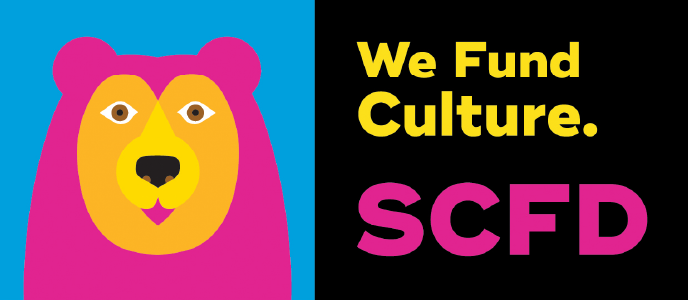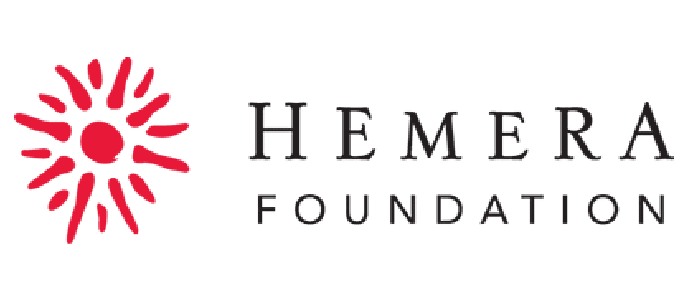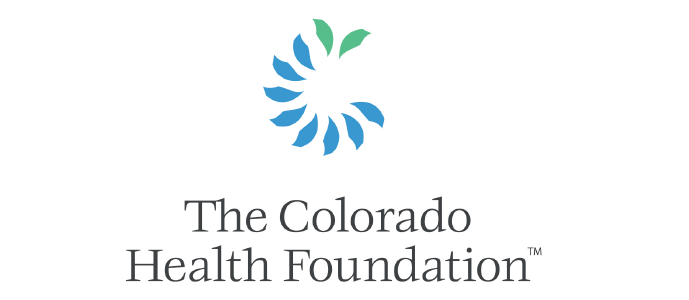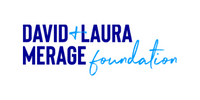Apply for the Arts in Society Colorado Art Grant
Arts in Society has returned to a two-step application process. Applicants will first submit a Letter of Intent (LOI) outlining their vision for an Arts in Society project.
After panel review, selected applicants will be asked to submit a detailed proposal before final funding decisions are made. See the full timeline below.
Sign up for our email newsletter and follow us on Instagram for upcoming announcements and updates!
2025-2026 Arts in Society Application Timeline
July 1, 2025 - LOI Application Opens on Submittable >
July 1 - September 5: Office Hours Available for Applicants >
August 4, 2025, 12-1PM MST: AiS Info Session on Zoom >
September 5, 2025 at 11:59PM MST- LOI Deadline
November 2025 - Proposal Invites Sent Out
January 2026 - Proposal Deadline for Finalists
March 2026 – Grantees notified
April 2026 – Grantees announced
Please check back as links will be updated and additional informational sessions will be listed.
Have more questions? Reach out to Lares Feliciano, Art Grants Manager: lfeliciano@redlineart.org
About Arts in Society support
Arts in Society provides both financial and organizational support. In addition to receiving project funding, Arts in Society grantees benefit from the following resources:
Learning Community Meetings - Arts in Society grantees participate in a learning community program through which they meet three times with their annual cohort of grantees throughout the first year following funding. Through these meetings they share resources and learnings, and build a coalition of support.
Evaluation Support - Through a collaboration with University of Colorado Denver's School of Arts and Media, Arts in Society grantees are provided an evaluation toolkit to aid in collecting program feedback and data.
Mini-Documentaries - All Arts in Society grantees will get assistance in filming a 2-minute documentary so that they can share their work with the world.
Marketing and Communications - Grantees receive marketing and communications support through various Arts in Society marketing channels, including the Arts in Society Facebook page, Instagram, and by contributing blog posts to the Arts in Society blog.
AiS Grant Application Regions:
FAQ - Frequently Asked Questions
What are the qualifications for the program?
In order to be eligible for a grant, applicants must reside in the state of Colorado, and have an arts idea that engages a social issue. Organizations, individuals, schools, and government agencies are all eligible to apply. Arts in Society funds cross-sector work through the arts; we specifically look for projects that demonstrate a high level of collaboration between artists, organizations, and a target community to address a problem or social justice issue.
What do you mean by cross-sector work through the arts?
This type of work is sometimes referred to as Arts &. The term implies the utilization of arts and culture as an integral part of creating solutions to civic, social, environmental, and health problems. Arts in Society funds projects that integrate arts and culture with other disciplines to improve the health and well-being of Coloradans. Qualifying projects will engage arts organizations and artists as partners in illuminating and finding solutions to a wide array of civic and social challenges in communities across Colorado. Read our blog for some examples of work by past and present Arts in Society grantees.
What’s considered socially engaged art?
Good question. There are many definitions, but we like this one: “an art medium that focuses on social engagement, inviting collaboration with individuals, communities, and institutions in the creation of art that informs a social issue”.
If you want to learn more about this field of practice, please check out the following links:
Pablo Helguera, Education for Socially Engaged Art
How do you define community?
We define community in both geographic and relational terms. A project must work with a community of people who share something in common (interest, geography, heritage, etc.).
Eligibility
Who can apply?
Arts in Society is open to nonprofits and individuals. Basically, all who reside in the state of Colorado can apply. You do NOT need to be an arts organization. We encourage applications from individual artists, non-arts organizations like human service groups, neighborhood organizations or healthcare organizations (as examples).
Can individual artists apply?
Yes.
Could government entities apply?
Yes.
Could an organization or artist located outside of Colorado be eligible to apply if they use an eligible local organization as a fiscal sponsor?
Primary applicants must be from Colorado. If you are an organization or artist outside the state of Colorado interested in applying, you must partner with an organization within the state in order to be eligible. A fiscal sponsor does not count as a “partner”. Partner organizations must play a critical role in the implementation of the project.
If I am already a grantee of one or more of the funding partners (currently Bonfils-Stanton, Colorado Health Foundation, Denver Arts and Venues, and Colorado Creative Industries) can I also apply to this program?
Yes.
Application
How many applications may I submit?
There is no limit. Each application should be for a different project. We encourage applicants to submit their strongest idea(s).
If I am an artist or arts group, is a non-arts partner required?
No, but if your project addresses or works with a social issue (as it should), the final proposal should speak to your ability and cultural competency in engaging with that social issue.
Money
How much will be awarded?
Grants will range from $5,000-$35,000 depending on the project.
Is there a matching requirement, or could AiS fund the entire cost of a project?
There is no “match” requirement (i.e. a need to raise matching dollars to what is awarded). Applicants may request the full cost of a project.
Could Arts in Society grantees be awarded less than the requested amount? If so, would the expected scope of work be adjusted to reflect lower funding?
Yes and yes.
If our request is for partial support, how secure does the other funding need to be if I want to have a competitive proposal?
You do not need to have secured other funding in order to be competitive. Applications will be reviewed on the merit of the project idea.
Could funds be used for capital projects - a facility renovation or construction, for example - if it meets the program objectives?
No.
*Please note that all grantees will be required to participate in a series (3 per year) of convenings to discuss what they’ve learned through the process of implementing their projects. Learning Community Meetings (LCMs) will be held at RedLine. Grantees are invited to bring up to three individuals from their project to each Learning Community Meeting. A travel stipend will be provided to non-metro grantees. If you are located outside of the metro area, you are encouraged to budget travel expenses for LCMs into your project budget.
Review
Who reviews my application?
A panel of mostly local and some national experts, with the support of staff representatives of the funding partners will review each application. Ultimately, the final decision lies with each foundation’s board of trustees.
What criteria will be used to review my application?
Panelists will review applications on the following criteria:
Artistic Commitment - Project demonstrates artistic and creative commitment as defined by its thoughtfulness or commitment to audience and community wellbeing, fulfillment of mission, and artists engaged.
Relationships- What are the relationships to community, to partners, to artists, or others involved? How authentic are these relationships? Are multiple sectors included?
Intent & Viability- Is the scope of this project realistic? Is the intended outcome viable? Are the right partners engaged?
Relevancy- How is the need for the project demonstrated? Is the approach informed by the community?
How do you define artistic excellence?
The arts are central to the project and the proposal reflects an informed understanding of the particular art form(s) being implemented. The criteria for the selection of artist and/or artwork is clearly defined and documented. Please refer to Animating Democracy's Aesthetic Perspectives: Attributes for Excellence in Arts for Change, for a detailed explanation of how aesthetics will be considered in relationship to proposed projects: http://www.animatingdemocracy.org/sites/default/files/pictures/AestPersp/pdfs/Aesthetics%20Short%20Take.pdf.
If my proposal is not accepted, will I know why?
Due to the number of applications we expect to receive, each one of them will not receive individual comments from the reviewers. As such, we cannot share with you exact reasons for your project being declined.
Grant Awards
When will grants be announced?
April 2025.
When will grant monies be distributed?
April 2025.
If I am funded, how long will I have to complete the grant?
Each applicant will determine the length necessary to complete the project. Projects should go no longer than 24 months and must completed by April 2027.
What is entailed in the "learning community" work?
All grantees will be required to participate in a series (3 per year) of convenings to discuss what they’ve learned through the process of implementing their projects. Learning Community Meetings (LCMs) will be held at RedLine. Grantees are invited to bring up to 3 individuals from their project to each Learning Community Meeting. A travel stipend will be provided to non-metro grantees. If you are located outside of the metro area, you are encouraged to budget travel expenses for LCMs into your project budget.
Whom should I contact if I still have questions?
For information about this program please contact Lares Feliciano at lfeliciano@redlineart.org.






